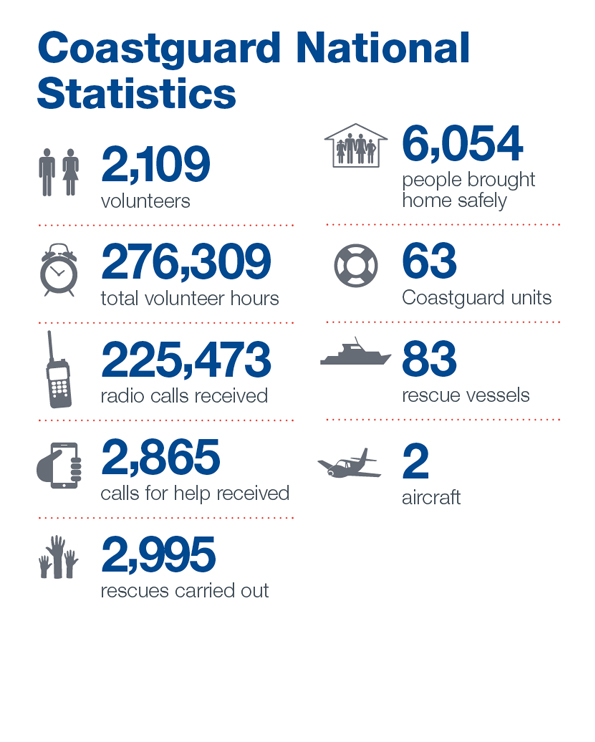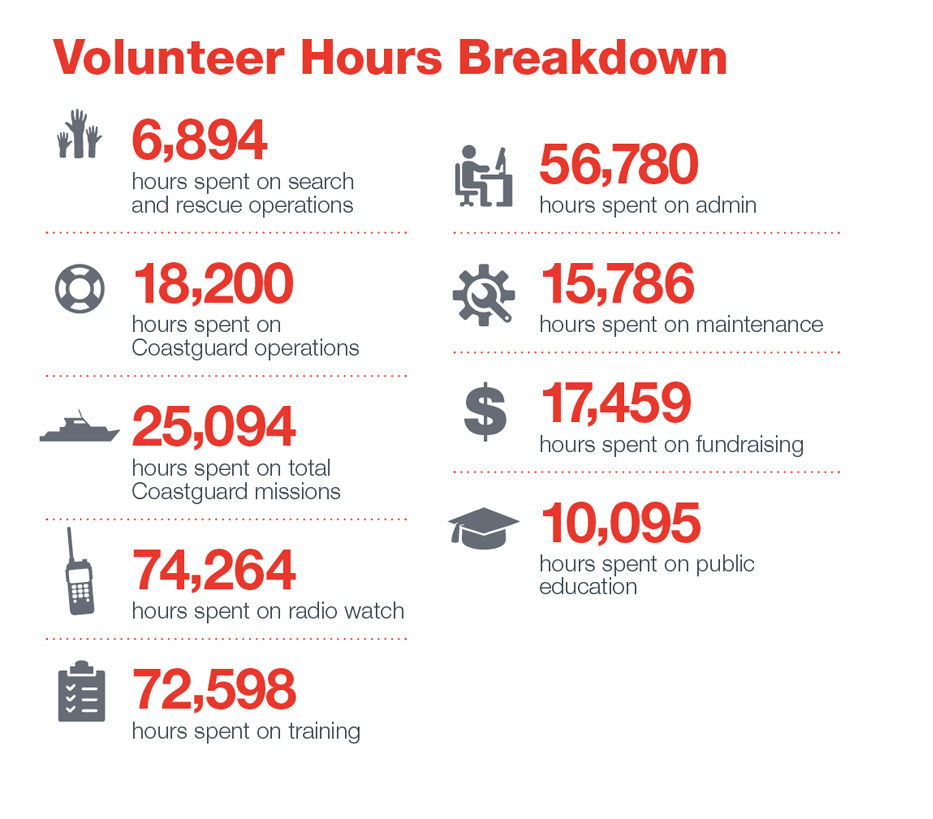National Statistics
Making a Difference
Building for the Future
New vessels for NZ communities – AC36 Project
With the America’s Cup less than 12 months away, almost all of the 26 chase and support boats have been built and are regularly seen in action on the Hauraki Gulf, streaming behind Te Kāhu and Te Aihe. On the completion of the America’s Cup, these vessels will be returned to Coastguard, re-fitted and delivered to their allocated Coastguard units around the country. This incredible opportunity has been made possible thanks to funding from Lotto players across the country and the support of the Lottery Grants Board. Plans are in place to bring the story of this great partnership to life and tell all New Zealanders about the significance of these new vessels. In many cases, these boats will replace ageing rescue vessels, enabling Coastguard units to continue serving their communities well into the future. It’s a win-win for New Zealand.
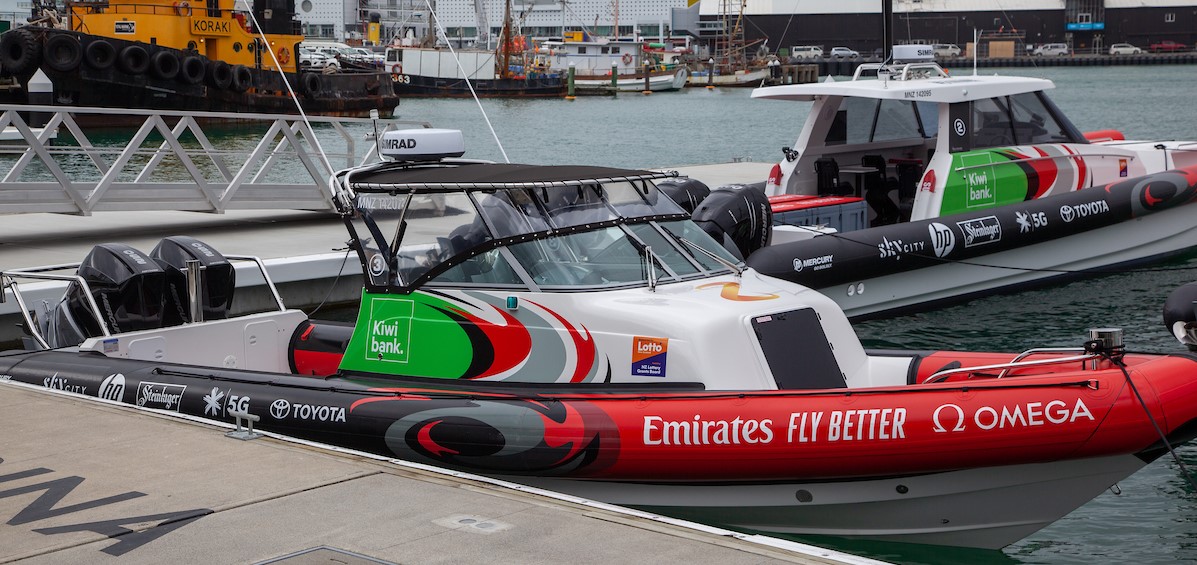
Raising the funds
It's a team effort
Our wonderful supporters are the reason Coastguard volunteers can save lives at sea. Volunteers give their time, share their skills and risk their lives to help others – and it’s our supporters who make all of this possible. What a powerful team!
Our Team Rescue supporters are an extraordinary group of people who give regular monthly gifts. Committed to saving lives, they empower Coastguard volunteers through their continued support.
“Coastguard volunteers are unsung heroes and are crucial to save people out at the sea. I am happily paying my membership fee and monthly donation. Keep up the good work!” Says Team Rescue supporter Chris.
Other generous supporters donate to our appeals, get behind fundraising events and buy tickets in our Coastguard lotteries.
Over the year, our group of amazing Coastguardians grew, with 30 more supporters choosing to leave a gift to Coastguard in their Wills. We now have a powerful group of over 80 Coastguardians committed to the next generation of volunteers and the future of Coastguard.
Thank you to all our amazing supporters who have our volunteers’ backs out on the water!
"Nobody plans to get in trouble at sea but unfortunately things can turn pear-shaped and knowing that Coastguard is ready and equipped to implement a rescue is very reassuring - and that is the very reason I donate to Coastguard." Brian, Coastguard supporter
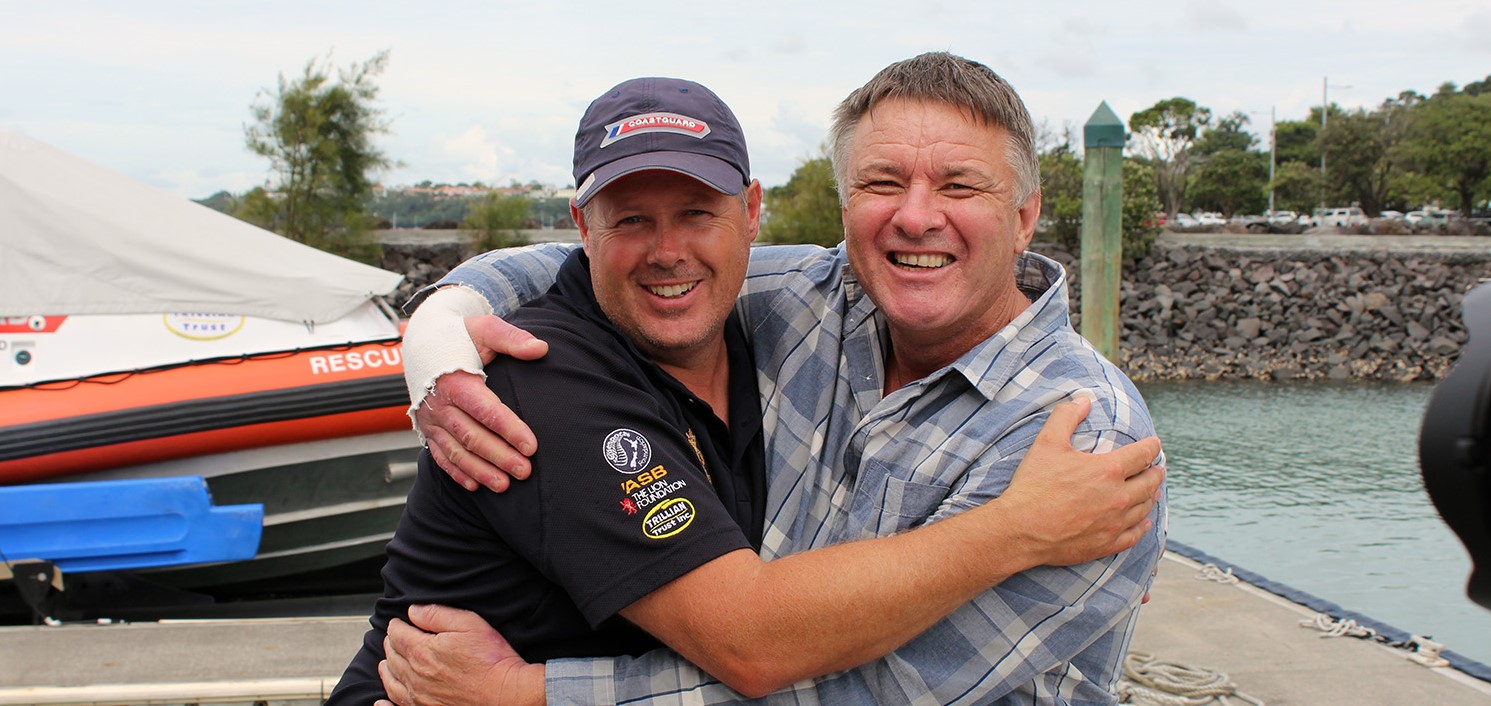
Survivor Peter Wills with Coastguard volunteer Chris Griggs.
Connecting with Communities
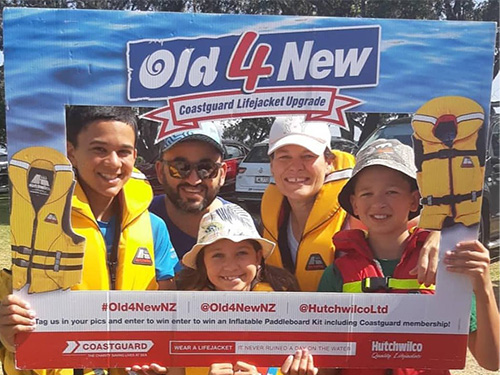
Out with the old in with the new
Over 2,000 old, damaged and ill-fitting lifejackets were removed from circulation last summer after Coastguard’s Old4New Lifejacket Upgrade Campaign toured the country.
Old4New takes education to the people, encourages safer boating and wearing a fit-for-purpose lifejacket, whilst also providing a great opportunity for Coastguard volunteers to engage with their communities.
This year we saw an increase in men aged between 35 and 50 visiting the van. Statistically this is the demographic most likely to get into trouble on the water, so it was a great result to see Old4New’s key messages reaching this at-risk group.
Thanks to Coastguard’s key campaign partners, Maritime New Zealand, Hutchwilco, Giltrap Volkswagen and Boating and Outdoors, over 15,000 Kiwis have become safer on the water over the past six years.
Coastguard and COVID-19
When New Zealand went into lockdown on 25 March, recreational boating activity almost completely stopped overnight. While Coastguard volunteers also stayed off the water with all proactive patrolling and face-to-face training stopping to ensure volunteer safety, our crews still remained rescue ready should any emergencies occur, which they did.
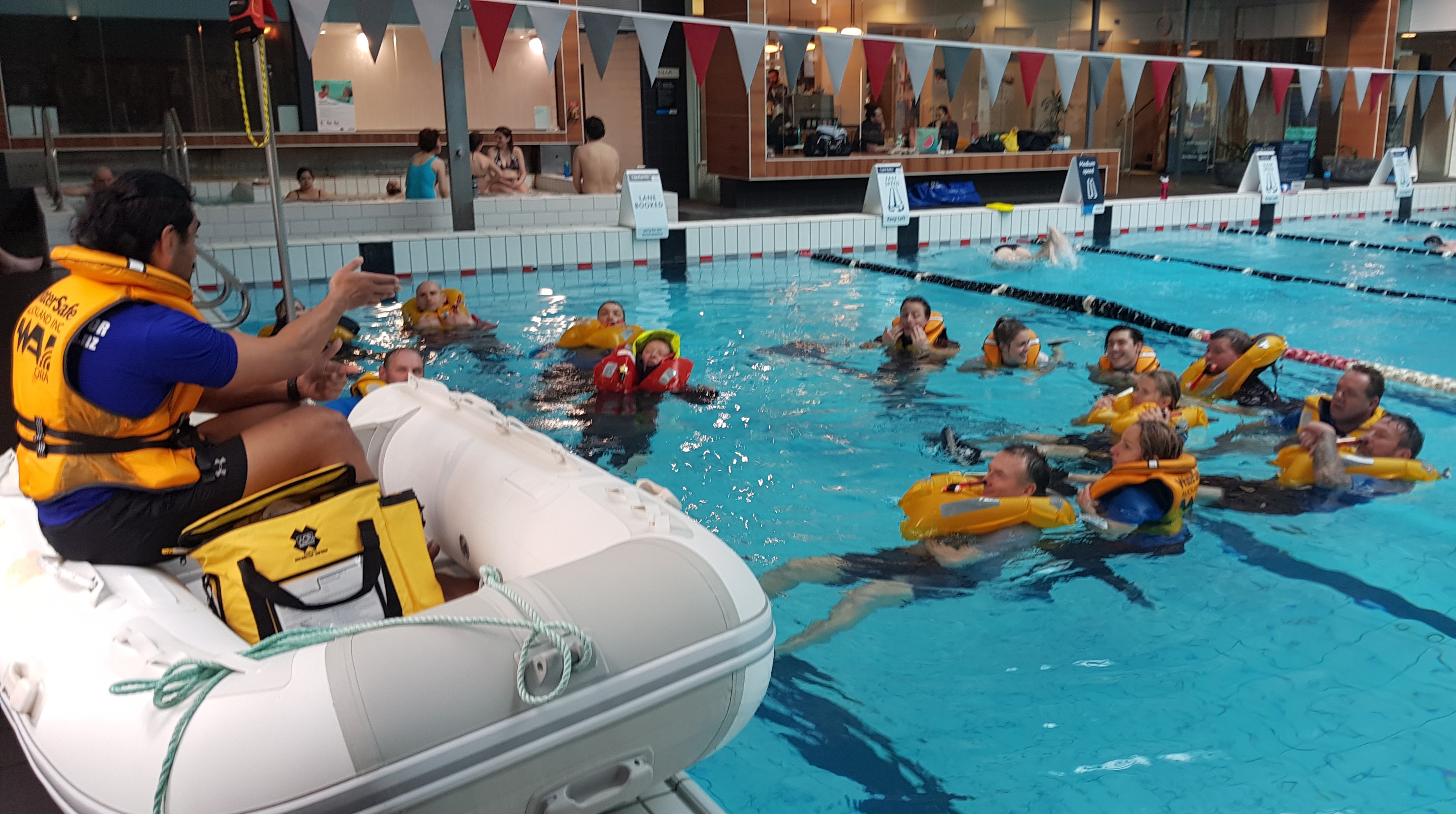
Safer boating through education
Education is key in enabling safe boating practice. This year alone, over 16,000 Coastguard Boating Education certificates were issued nationwide, with 800 of those going to boaties in at-risk groups including Pasifika, Māori and new migrant groups, who are all over-represented in Aotearoa’s drowning statistics.
Whilst the impact of COVID-19 resulted in boaties inability to be on the water due to alert level restrictions in early 2020 – kiwi’s were still motivated to learn and upskill through Coastguard Boating Education, resulting in a surge in online enrolments.
The implementation of new online programmes like Beginning Boating, a virtual Boat Master programme and improving existing online courses, meant Coastguard Boating Education was able to keep up with the demand and provide great learning experiences, confirming the longevity of the programmes for years to come.
Recognising Our Volunteers
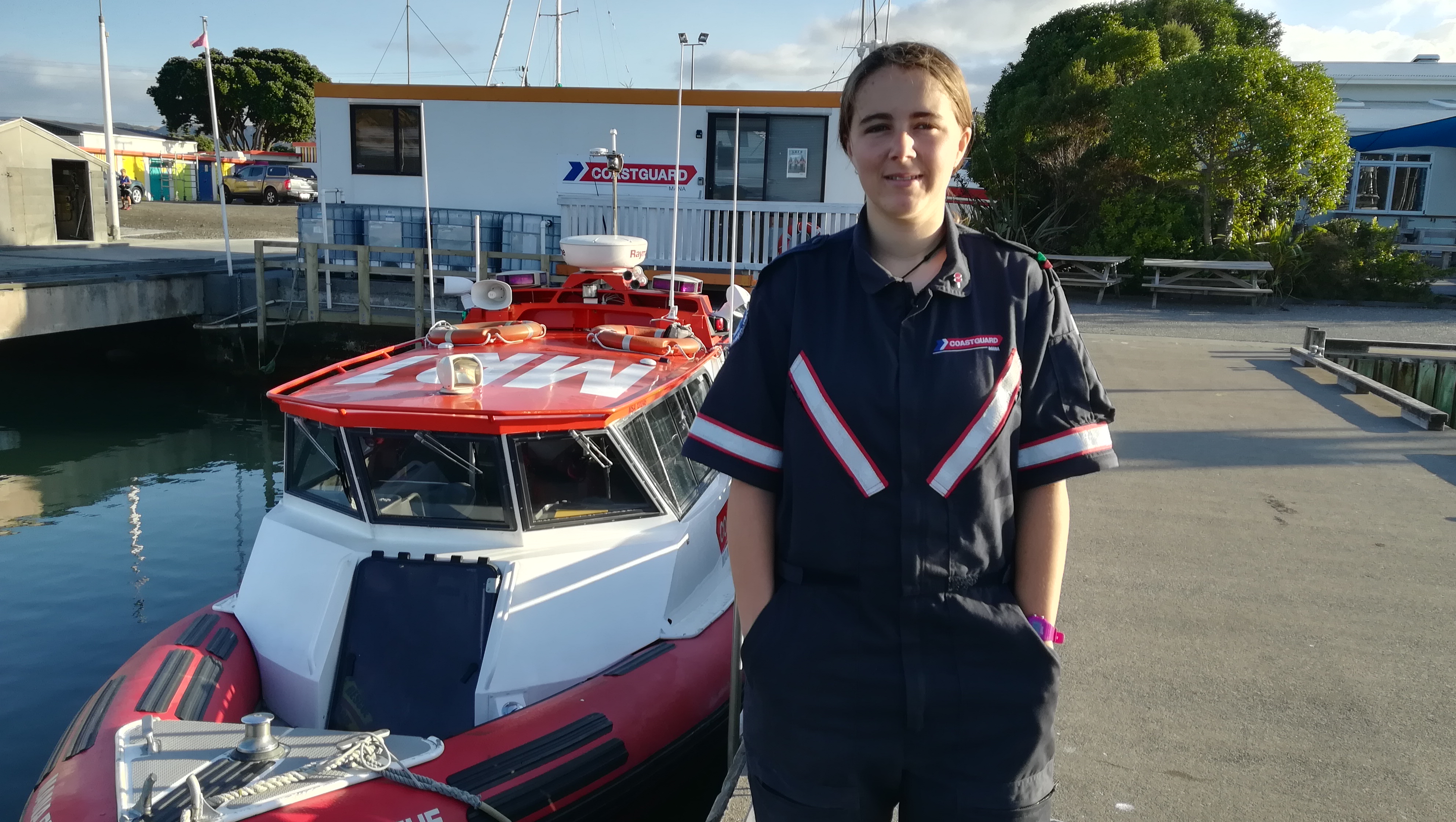
Young Volunteer of the Year Award, Kate Stewart
Coastguard Mana volunteer Kate Stewart was awarded the 2020 Coastguard Supporter Young Volunteer of the Year Award.
Kate has been volunteering for Coastguard since she was 16 years old. Now, five years on, she is a well-respected senior crew member and a qualified Coastguard Instructor. Starting out as a quiet trainee, Kate has blossomed into a confident young leader.
The winner of the Coastguard Supporter Young Volunteer of the Year Award is ‘the people’s choice’ and decided by donors and supporters of Coastguard. This year there were four very deserving finalists from around the country, with Kate receiving the most votes to win.
The crew at Coastguard Mana say Kate, who is also a student paramedic, has developed into a confident, knowledgeable and mature young leader who inspires others with her dedication and professionalism. What sets Kate apart from the rest is her eagerness to learn, confidence to teach others and above all else, her dedication to helping people in their time of need.
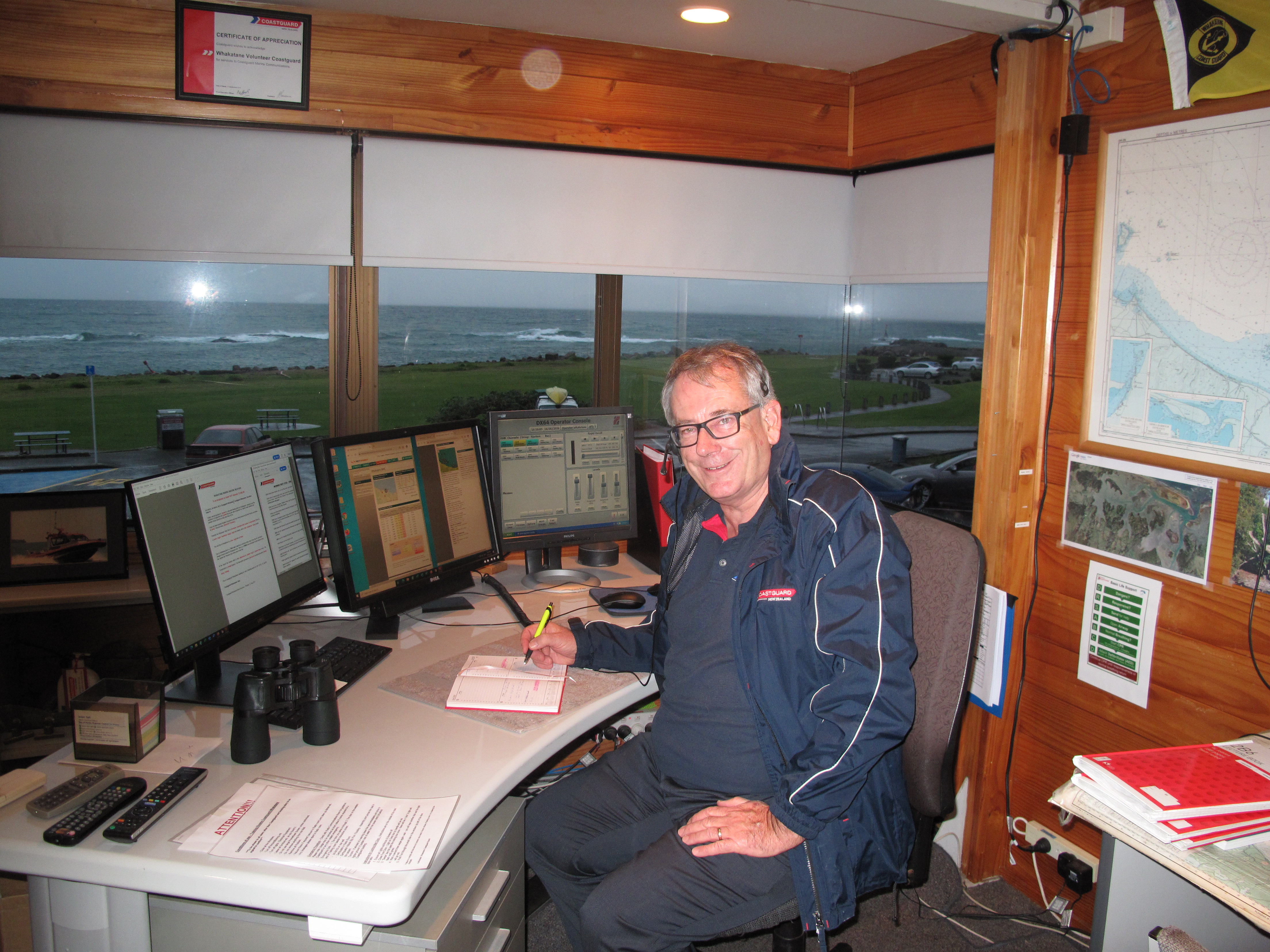
Volunteering is in Tony's DNA
Coastguard Whakatāne volunteer Tony Boone was made a Member of the New Zealand Order of Merit (MNZM) this year for his immense contribution to Coastguard and the Whakatāne community.
The Coastguard Radio Operator has been with the Whakatāne unit for 20 years and like many of our volunteers, the satisfaction of being there to support a fellow boatie and the comradeship between volunteers, keeps him coming back to Coastguard.
Coastguard exists to serve communities around the country, so volunteers, like Tony, are often community-focused individuals. In Tony’s eyes a Coastguard volunteer is someone who is motivated by the desire to help others and to keep boating safe.
As a local boatie himself, Tony is a well-respected member of the unit who brings his knowledge of the community and his own boating expertise to the job, making him a trustworthy voice at the end of the radio.
New Zealand Search and Rescue Awards
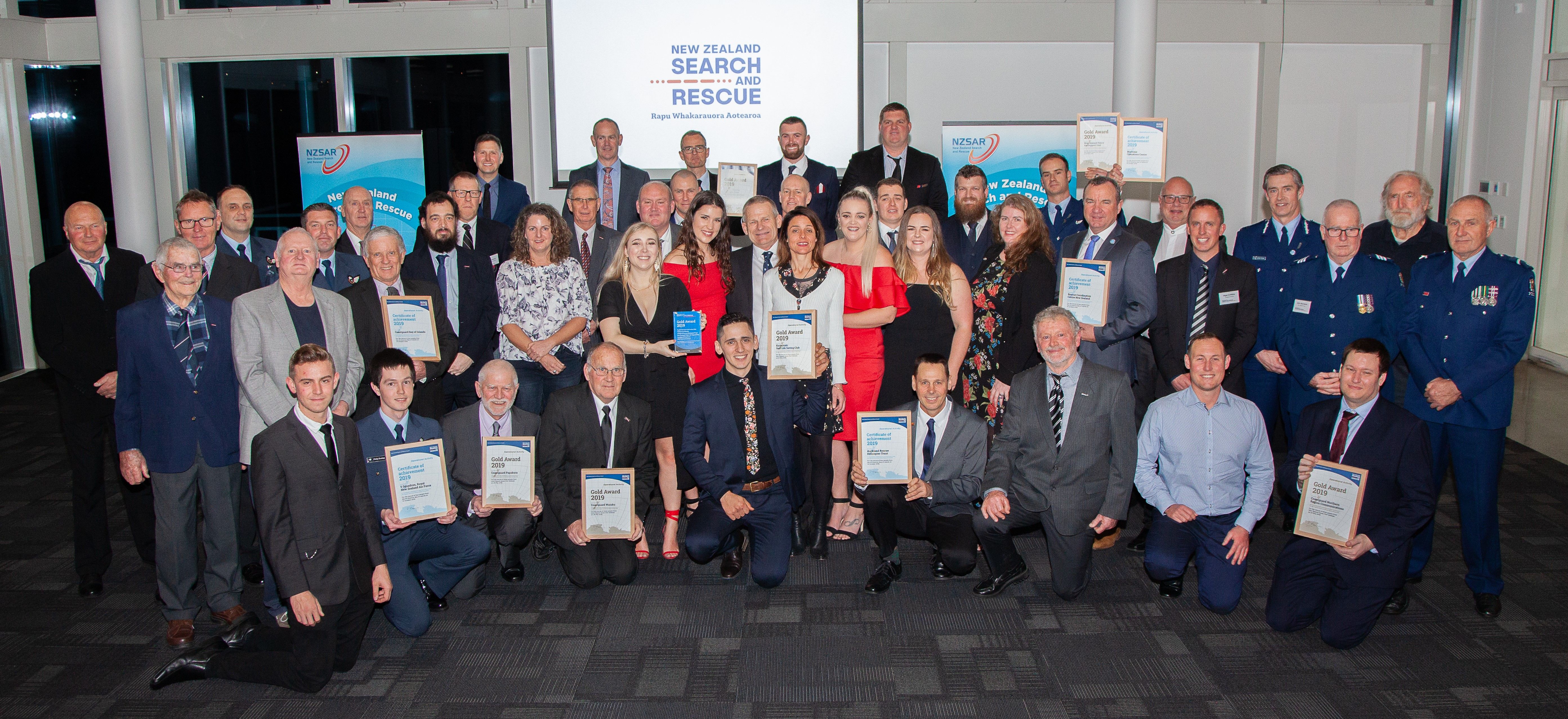
Each year, the immense courage shown by the people and groups involved in the search and rescue field is recognised at the New Zealand Search and Rescue (NZSAR) Awards.
The rescue of three people including a child, thrown from their vessel while trying to cross the Port Waikato Bar in May 2019, saw Coastguard Papakura, Coastguard Waiuku and Coastguard Northern Region Communications receive a Gold Award in Operational Activity, alongside Kariaotahi Surf Life Saving Club, Auckland Rescue Helicopter Trust and the New Zealand Police Air Support Unit.
Coastguard Bay of Islands received a Certificate of Achievement in Operational Activity for their response to the rescue of four people from a sinking yacht off the coast of Cape Brett in October 2019. The crew, who battled ferocious conditions to try to reach the yacht, were awarded alongside the Maritime Operations Centre, Rescue Coordination Centre New Zealand, 5 Squadron – Royal New Zealand Air Force and Auckland Rescue Helicopter Trust.
Coastguard Turangi volunteer of 17 years Allan Turia also received a Certificate of Achievement in Support Activity for his outstanding service and commitment to Coastguard and iwi relationships.
Our Work in Action
A race against time to save a family
Fighting an incoming tide, volunteers work hard to save a family on a remote beach.
Crew members from Coastguard Whangaroa were about to sit down for a roast dinner together when they received a call just after 7pm on 20 December. A tractor had rolled down a hill onto a remote beach, fatally crushing a grandfather and critically injuring a grandmother and their two grandsons.
The crew immediately swung into gear to get their vessel ready and reach the family as quickly as possible.
On arrival, the seriousness of the situation sunk in. The crew could see the grandmother lying on the beach and the two young boys lying in shallow water, all with life-threatening injuries.
It was a race against time to reach the family before the tide came in.
Medic crew member Lisa raced to the boys sides. The tide had begun creeping up toward their faces. Thinking on her feet, Lisa used plastic milk containers to keep their heads above water.
The crew only had a 12 minute window to get the boys out of the water before they drowned. With suspected back and neck injuries they had to act with extreme caution – one wrong move could have meant the difference between life and death. The team placed planks of wood underneath the boys and used these to gently drag them from the water.
Being in such a remote area, the helicopter had nowhere to land, so the crew evacuated the family by sea to reach the helicopters waiting at the wharf.
It is thanks to the lifesaving response of Coastguard Whangaroa that the grandmother and her grandsons are safe and well today; three lives were saved that day. Without the Coastguard crew's determination and quick thinking, this rescue could have had a very different outcome.
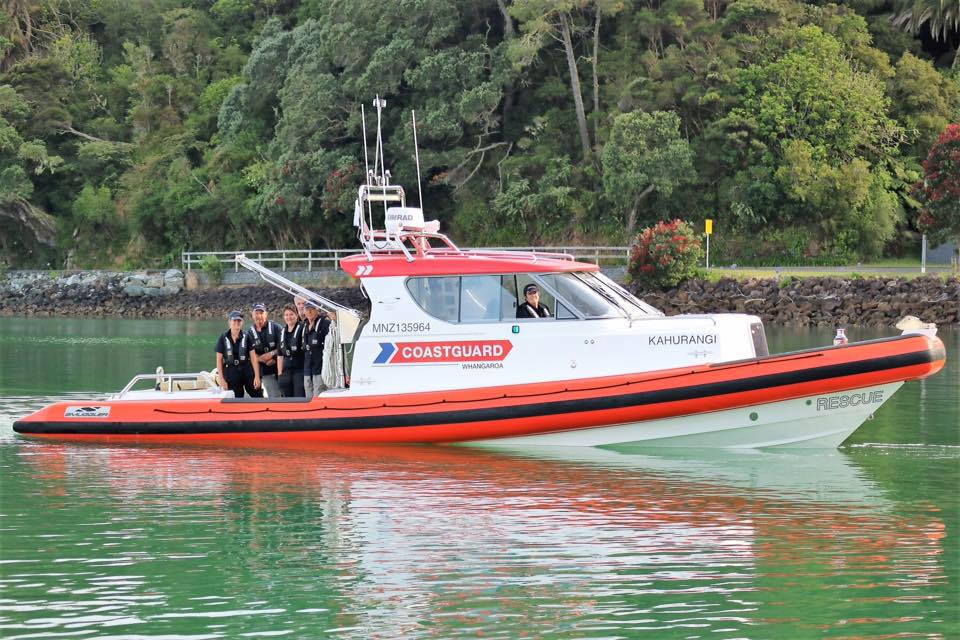
The crew only had a 12 minute window to get the boys out of the water before they drowned.
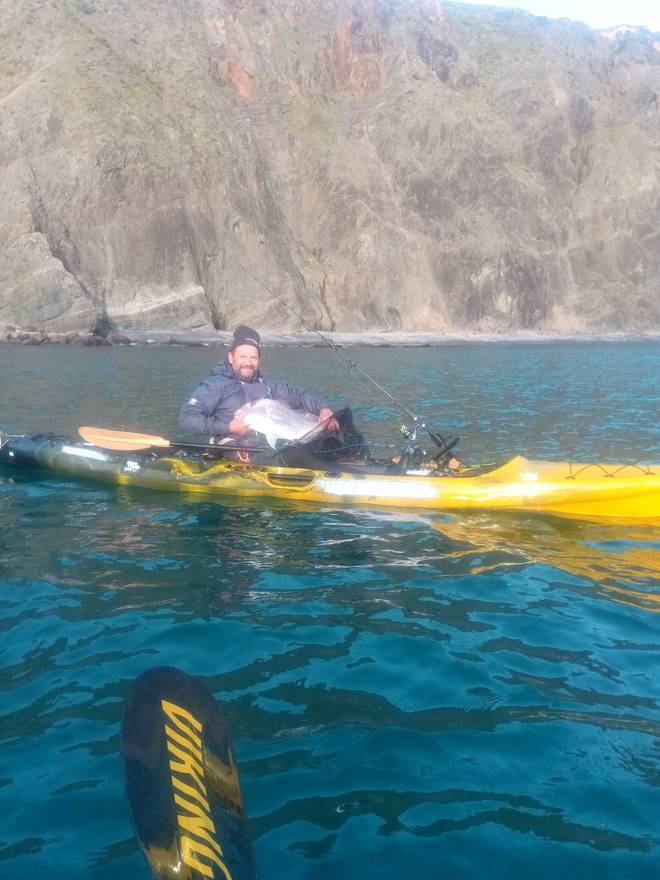
Earl Murray before the weather turned
"I couldn't believe how amazing they were - I was actually getting a bit emotional. They saved our lives."
Dramatic night-time rescue after kayakers drift 8km offshore
Volunteers from Coastguard Raglan battled rough seas and gale-force winds to rescue farmers and good mates Rex de Rooy and Earl Murray.
The Waikato fishermen are lucky to be alive after being blown nearly 8km out to sea in their kayaks in late June 2020.
The two men were experienced and well prepared, with marine-grade VHF radios and an emergency position-indicating radio beacon (EPIRB), which the Coastguard Raglan crew credited with saving the pair's lives.
After keeping a close eye on the weather, the fishermen set off from Kiritehere Beach on a beautiful Wednesday afternoon with the fishing conditions the best either of them had seen.
While the two men were busy catching fish, the wind started to pick up. Although, they were only a few hundred metres from shore, the strong wind and dropping tide made the paddle back to shore impossible.
It soon became clear that they were in a bad situation.
With the light quickly fading, they made a mayday call on their VHF and set off their EPIRB. The signal was picked up by the New Zealand Rescue Coordination Centre in Wellington.
Around 80km to the north, volunteers from Coastguard Raglan were on the water for a training night when they received the call to help. They sped down the coast, keeping an eye on the coordinate updates they were receiving from the transmitting EPIRB.
About two hours later, de Rooy and Murray saw a "massive light" in the distance, heading straight for them.
"We realised it was Coastguard coming for us. It was an incredible feeling."
The crew arrived and within minutes the fishermen were aboard the Coastguard vessel, wrapped in blankets and being fed lollies.
Coastguard Raglan’s hospitality continued on land, with hot pizzas and soup waiting for the rescued pair on arrival, thanks to the owners of the local Four Square who had stayed open especially. The volunteer crew went further, rinsing down de Rooy and Murray's kayaks and fishing gear.
"I couldn't believe how amazing they were - I was actually getting a bit emotional. They saved our lives," de Rooy said.
Raglan Coastguard senior skipper Kevin Dreaver said, despite it being night-time and the men being so far out to sea, it was "dead easy" to find them.
"They'd set off their EPIRB so we were getting updates on their position constantly, and the closer we got we could see the lights they had on their kayaks."
"It was their own ability that saved them. They were incredibly well prepared, had all the gear - more prepared than most boaties."
Six people pulled from the sea by volunteers
An outgoing tide and freezing water could have meant a very different outcome for a group of waka ama paddlers if it wasn’t for Coastguard Wanganui.
On 27 May 2020, thanks to the quick actions of volunteers from Coastguard Wanganui, six people were lucky to get home safely to their families after their waka ama was swamped by a wave.
At around 5.30pm that evening, Coastguard Wanganui volunteers received an emergency call-out after police were told that six people were in the water near the Wanganui Bar.
The volunteers quickly assembled at their unit base and, with five volunteers on board Wanganui Rescue, were on the scene within 15 minutes of the call being made.
The paddlers were coming back over the bar when they were swamped by a wave from behind, causing all six people to end up in the water nearly 500 metres from shore, as the waka quickly became submerged.
“It was already dark when our pagers went off, so we knew we had to get out there quickly,” said Coastguard Wanganui President, Garry Hawkins.
Fortunately, despite the outgoing tide, the group was able to stay together by holding onto the submerged waka.
“Three of the paddlers were wearing headlamps so our crew could see where they were in the water. On arrival, they quickly got to work pulling everyone on board Wanganui Rescue and checking everyone was OK."
“Two of the paddlers were showing signs of hypothermia," says Hawkins. "I’d say they’d been in the water for around 30 minutes when we got to them. The water was about 14 degrees at the time so they were lucky they weren’t in there for any longer.”
"On arrival back to land, all six paddlers were taken to hospital for a check-up and then discharged. We could have all been facing a very different outcome. Thankfully six people made it home to their families that night.”
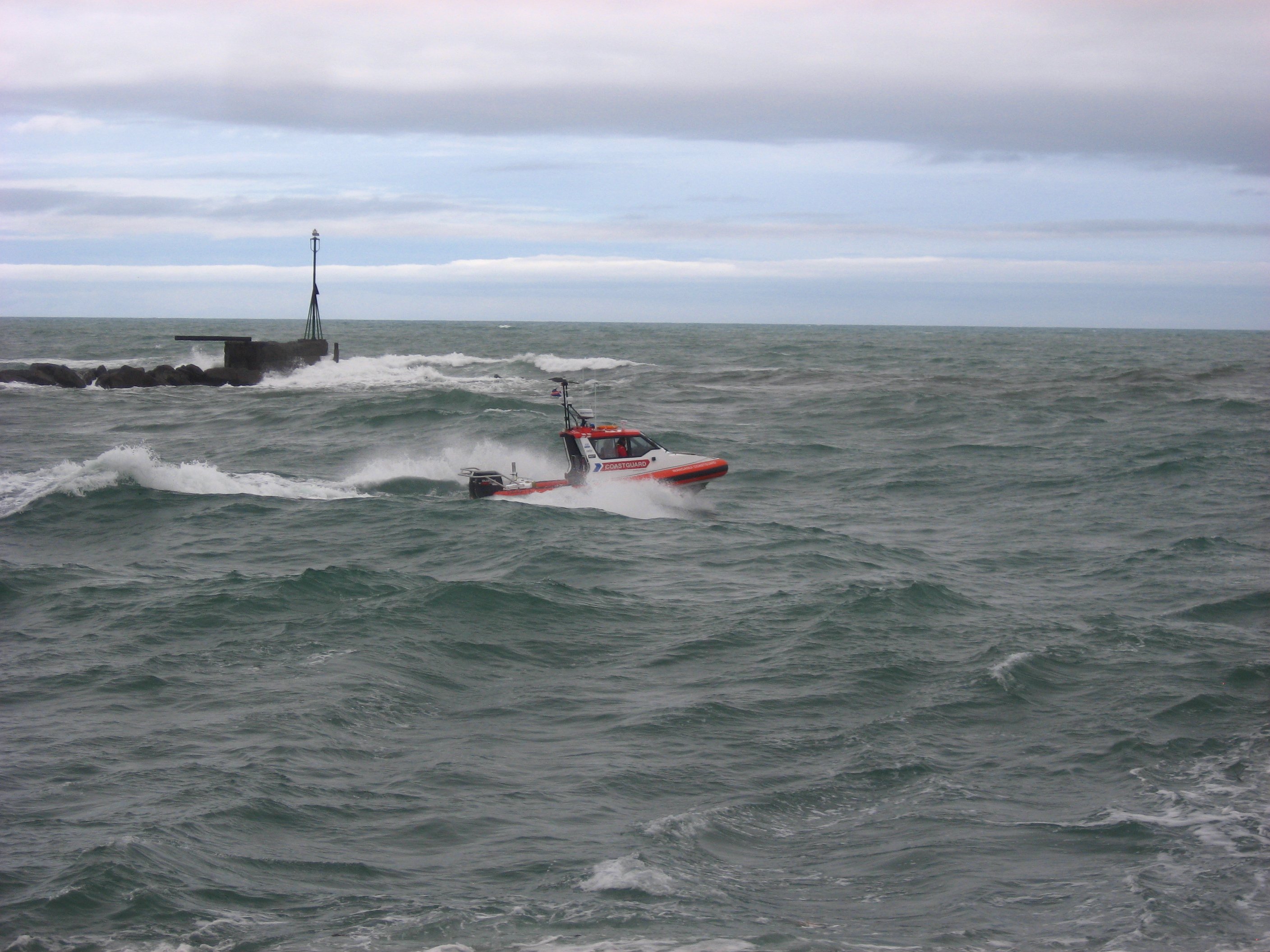
“We could have all been facing a very different outcome. Thankfully six people made it home to their families that night.”
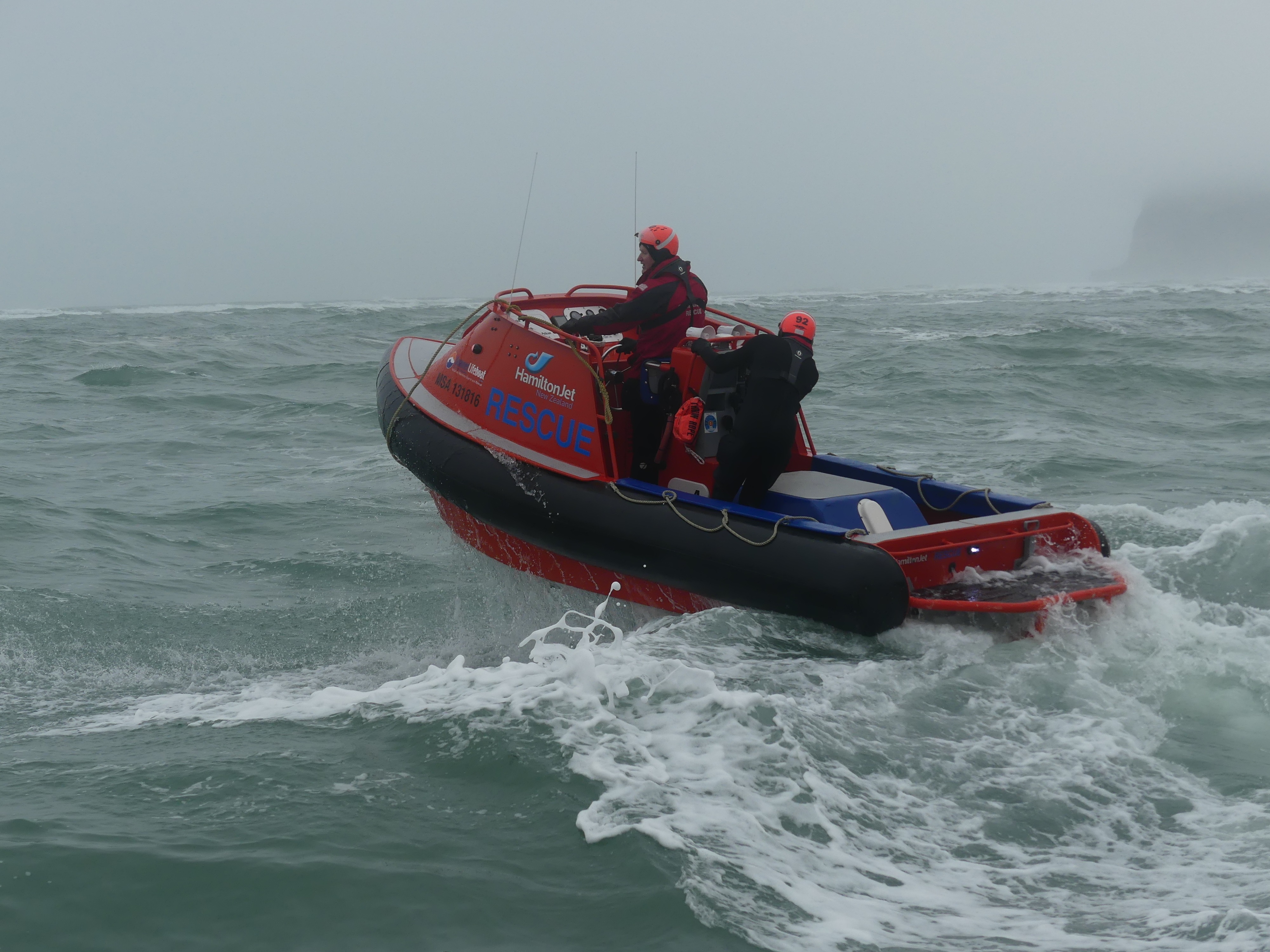
No match for the gusts, and unable to fight the strong current, the surfer had no choice but to drift out with the tide.
Surfer saved from being blown out to sea
Christchurch’s Sumner Beach is a popular surfing spot all year round, but especially in the height of summer.
While the rolling waves are appealing for both swimmers and surfers, like most of New Zealand’s coastal beaches, swimming and paddling at Sumner comes with its dangers.
On a balmy Sunday evening in December 2019, four Sumner Lifeboat volunteers came to the rescue of a surfer who was dragged out to sea by a strong rip just off Sumner Head.
The surfer had entered a dangerous patch in the middle of the bay where strong currents and unruly rips pose a threat to even the strongest of swimmers.
Residents reported seeing the surfer being dragged out by the strong current at around 7.50pm. With no time to waste, the Lifeboat Station swung into gear. Thirteen of Sumner’s local volunteers responded to the call-out. The crew of four were briefed, Hamilton Jet Rescue was launched, and the team was on its way to reach the surfer within a matter of minutes.
Strong winds pushed the surfer out to sea past Whitewash Head. No match for the gusts, and unable to fight the strong current, the surfer had no choice but to drift out with the tide. It wasn’t long before he was nearly 1km offshore.
It took Sumner volunteers all of 15 minutes from the initial call to locate the surfer and pluck him from the sea. Although he was tired from his ordeal, he was otherwise unharmed.
Sumner is a tight-knit community. Aware of the risks Sumner Beach poses, local residents keep a close watch on surfers and swimmers in the area and are quick to inform Sumner Lifeboat volunteers of people who may be in danger.
Next section
Our People

